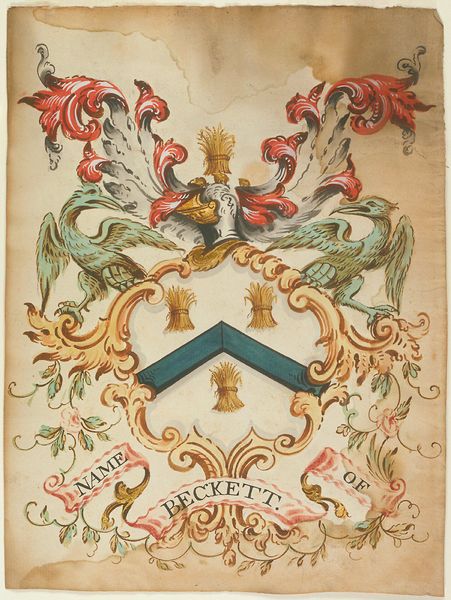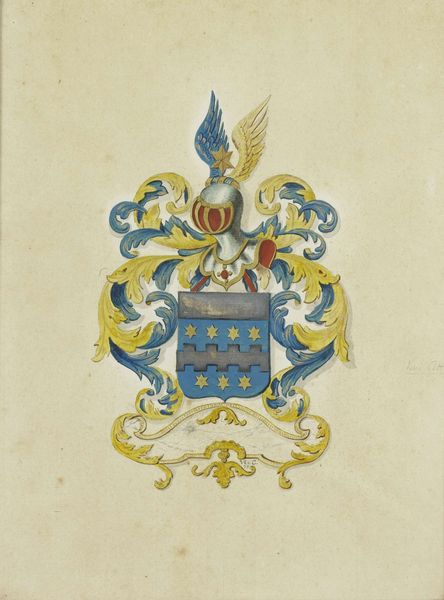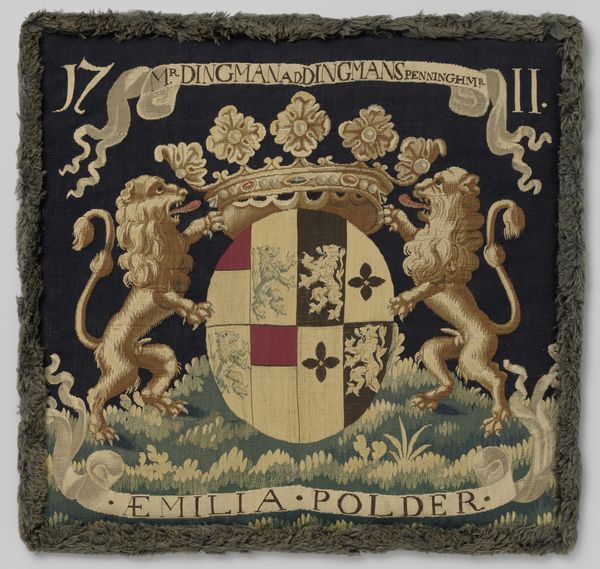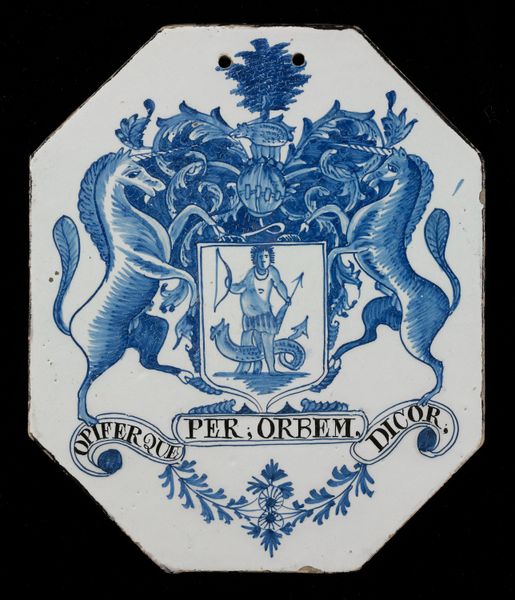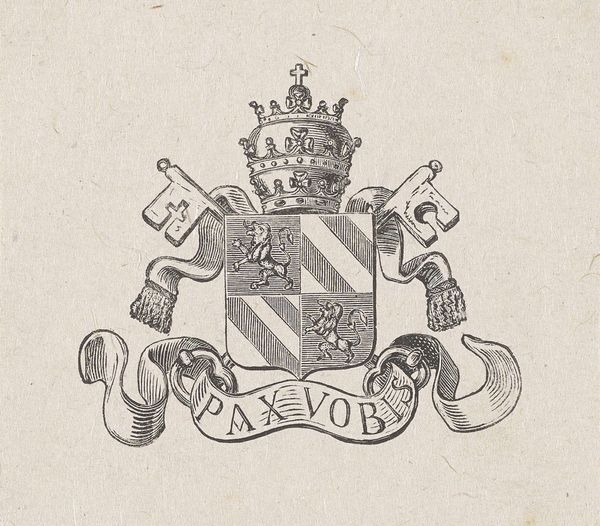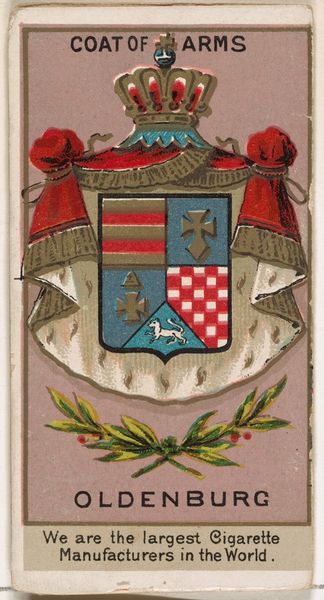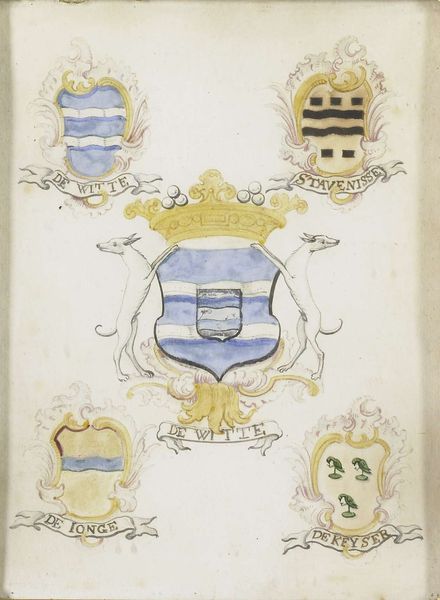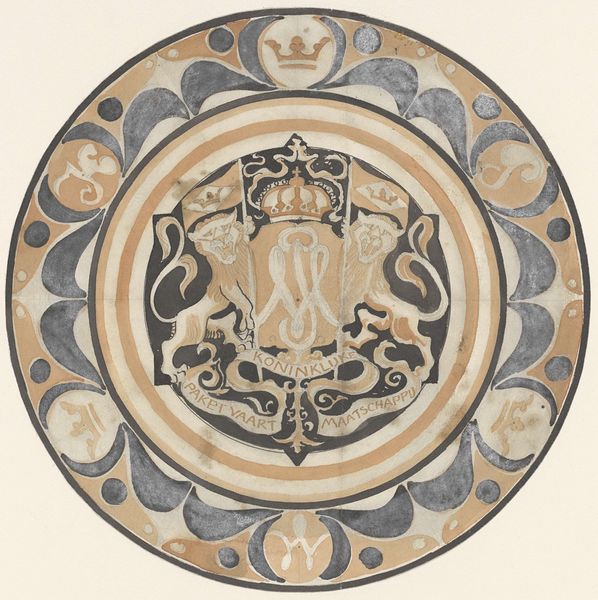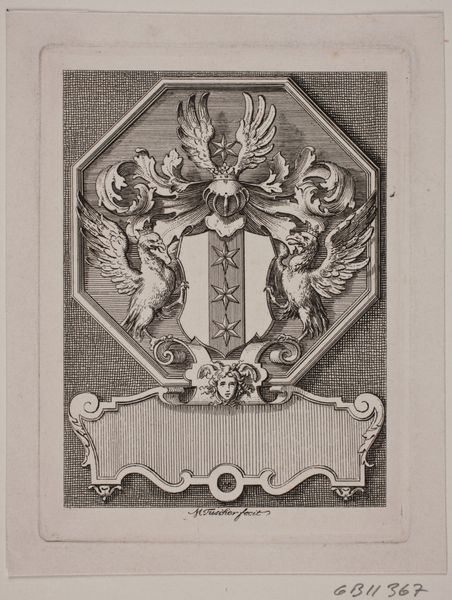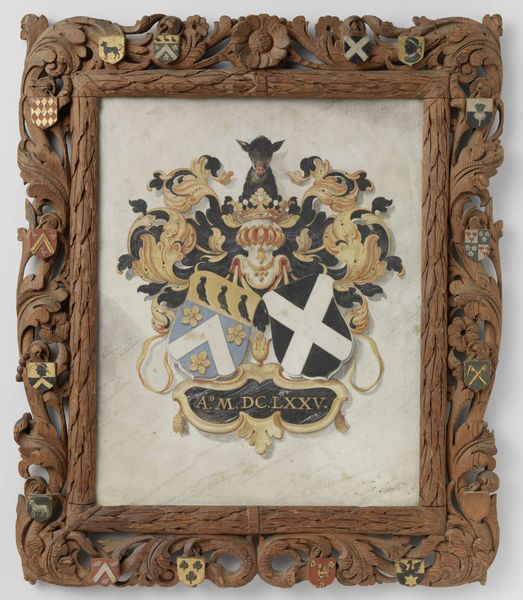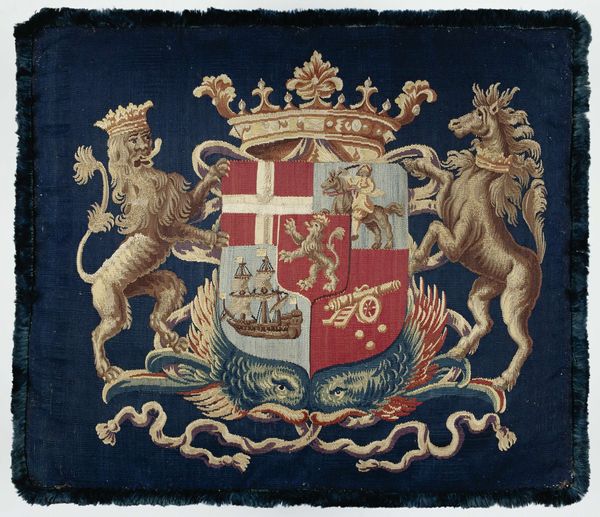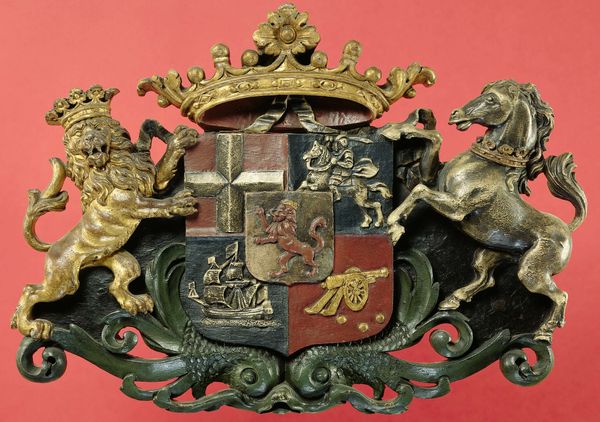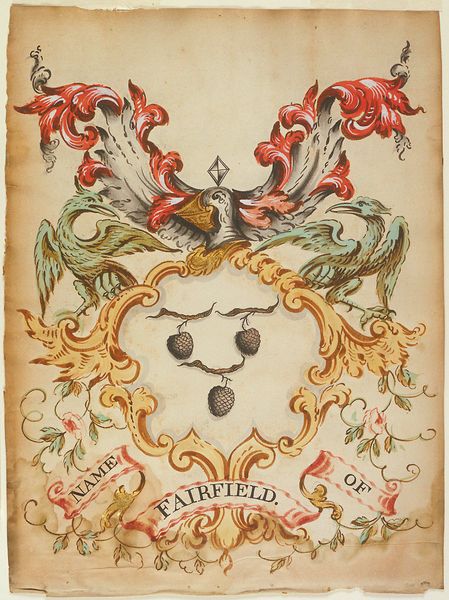
ceramic, earthenware
#
baroque
#
decorative
#
ceramic
#
earthenware
#
stoneware
#
ceramic
#
history-painting
#
decorative-art
#
decorative art
Dimensions: 12 1/4 x 9 1/2 x 3/8 in. (31.12 x 24.13 x 0.95 cm)
Copyright: Public Domain
This armorial plaque was made in Delft, in the Netherlands, in 1687, by an anonymous artist. The image speaks of a society steeped in symbolism and social hierarchy. Heraldry, with its codified language of emblems and colors, was a visual shorthand for lineage, status, and power. Delftware, the tin-glazed pottery of the region, was a burgeoning industry, buoyed by the Dutch Golden Age's economic prosperity. This plaque wasn’t merely decorative; it was a statement, a claim to identity within a complex social structure. The specific imagery – the figure of the god Neptune, the horses – would have resonated with contemporary audiences, conjuring associations with maritime power and aristocratic virtue. The Latin inscription, meaning "I am said to bring help throughout the world," possibly alludes to the family's mercantile activities. To truly understand this object, we must delve into the archives, tracing the families who commissioned such pieces and the artisans who produced them. Through such research, we can begin to reconstruct the social and institutional contexts that shaped the production and reception of art in 17th-century Netherlands.
Comments
No comments
Be the first to comment and join the conversation on the ultimate creative platform.
